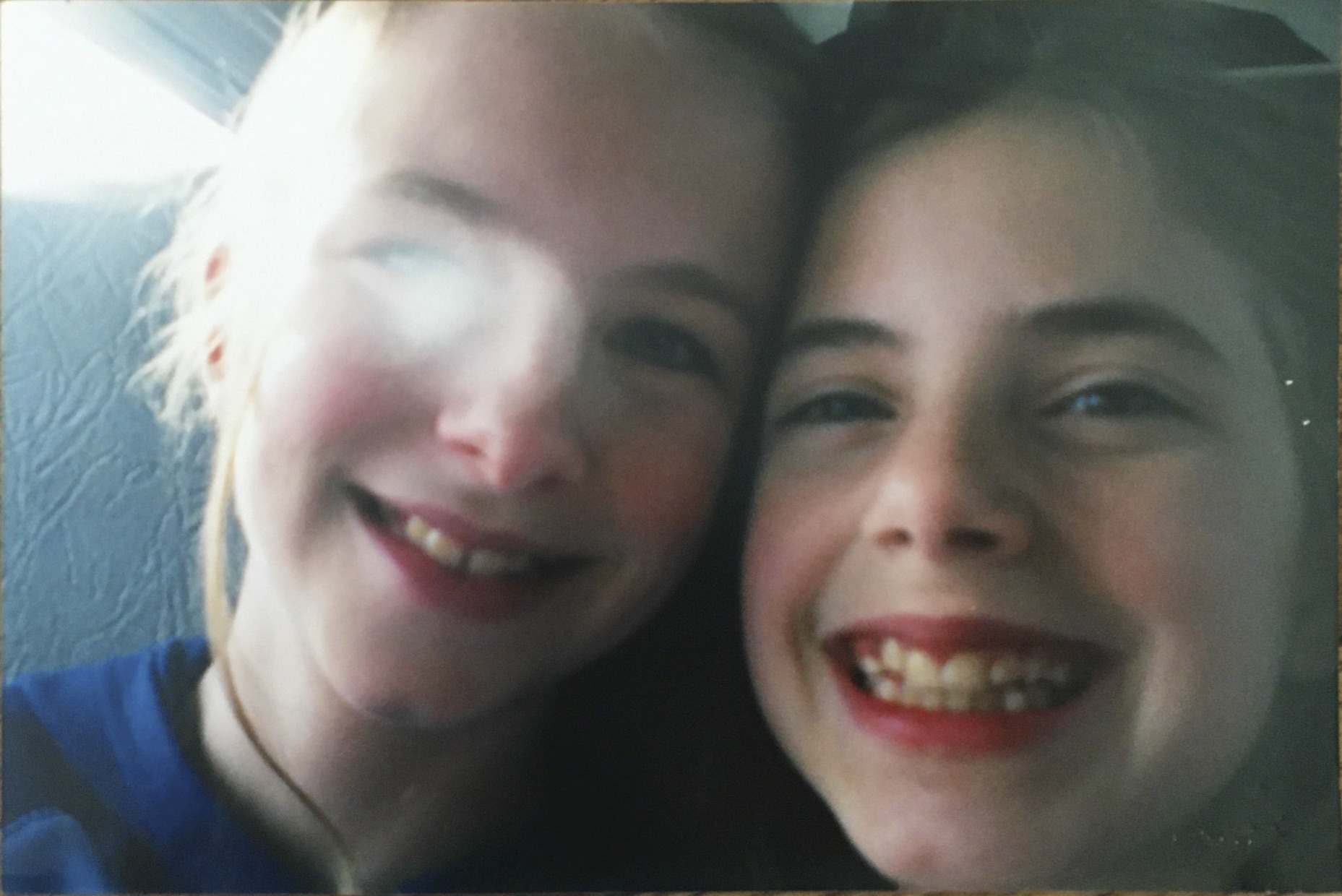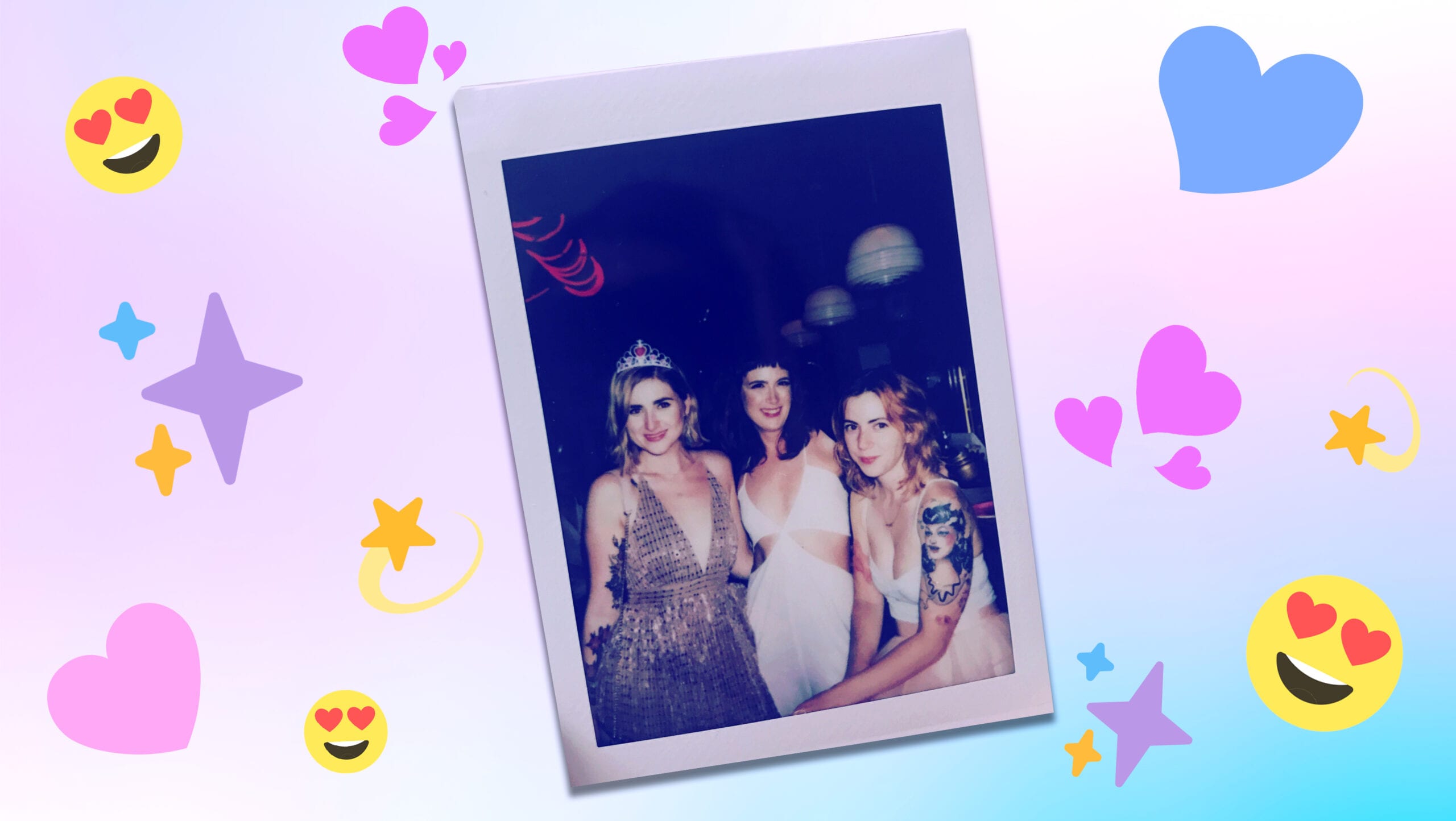In 2014, I found myself stranded on a lonely, bisexual island. I’d just ended a four-year relationship with a lesbian and once again started casually dating cis, often straight, men. For most of the friends, peers and coworkers I had met over the previous four years, the assumption that I was a lesbian was shattered. My friends asked each other, “Is she going back to dudes?” I was embarrassed: Was bisexuality really a regression? I felt my queer community shrinking, growing smaller on the horizon as it left me behind.
It seemed there were no bisexual allies in sight. I couldn’t help feeling that the decrease in “likes” on my Instagram pictures of male partners, compared to those of my ex, meant something insidious. A former Dyke March organizer, I began to question my place in community activism and organizing. Even worse, I was a femme researcher, and the belief that femme is a strictly lesbian identity wormed its way into my ear. Now I had a severe case of queer and academic imposter syndrome.
Around this time, a queer friend messaged me on Facebook after I had posted a spate of “misandrist” content on social media—a list of men not to fuck, a how-to on avoiding dating “man babies,” a cartoon decrying the fragility of the male ego and a 109-year-old woman’s claim that the secret to a long life was avoiding men. My friend jokingly told me she was trying to figure out if this “misandrist” content meant I had recently killed a man, or if I was really happy with one.
I was really happy with one.
She assured me that she, too, “flexed her misandry muscles” most when she was in a happy relationship with a dude. I had to laugh as my anxious navigation of my own sexuality was reflected back to me, but it made me feel so seen. I had never talked about the complications of bisexuality with anyone before.
“I need a space to just be, and my bisexual friends have helped create one”
Biphobia can make us want to isolate ourselves, but I’m learning that the best remedy is actually connecting with other bisexual people. This is what my therapist—a bisexual herself!—still gently suggests to me, as soon as my hyperventilating slows to a rough hiccup: “Spend time with other bisexual people,” she says. “They will make you feel normal.”
I’m finding this to be very good advice. With my bisexual friends, we’ve created a world where bisexuality is out in the open: We talk about it, we joke about it, we commiserate about its ups and downs. I see my friends dating women and men and sometimes I help them flirt with everybody online. Nobody feels the need to ask clarifying questions to understand what’s going on (except for maybe, “Is this the Sagittarius or the Libra?”).
In my relationships with bisexual women, bisexuality—a huge aspect of our lives—becomes ordinary and normal, rather than curious and confusing, or something I’d rather keep private so I don’t have to explain it. I need bisexual women to find a reprieve from the pressure to choose men because it’s “normal,” or choose women because it’s more “radical.” I need a space to just be, and my bisexual friends have helped create one.

I need bisexual women in a similar way that women have always needed each other to survive the slog of patriarchy. The intense bonds women tend to form with each other have been attributed to the patriarchal structuring of society, rather than anything innate or essential about being female. In her famous 1981 article, “Compulsory Heterosexuality and Lesbian Existence,” notable lesbian feminist Adrienne Rich wrote that the expectation that women act as primary caregivers meant that women become the primary relationship in each other’s lives while men are always emotionally secondary. In 1975, historian Carroll Smith-Rosenberg argued that from within the private sphere—where women have historically been relegated—an entire female world developed, one that was different than the dominant culture, one in which women were valued. It is women, according to Rich, that “make life endurable for each other.”
If I think about my own life, this still feels true: I don’t know how I ever would have embraced my bisexual identity—or gotten through a myriad of other things—without the women that have always been at the centre of my world.
I’ve had the same best friend for almost 25 years, a tidbit that is perhaps more impressive knowing that I just turned 30. Our bond was born on a school bus in Grade 1: Trudy had just moved to my small rural town in Ontario, and we were assigned to sit together. As the bus bounced along the back roads that would bring us home, we giggled over stickers, played hand-clapping games and spied on the boys in our grade we thought were cute.

Trudy and Andi on the school bus. Credit: Andi Schwartz/Xtra
We lived only a minute from each other and yet spent hours on the phone, twisting the cord around our fingers, describing the mundane goings-on at our respective households. When we visited each others’ houses we would engage in long, winding conversations. Through our adolescence we also kept a joint diary we called “The Notebook” sharing the details of our crushes, enemies and other young feelings. Ours was—and continues to be—a closeness so ordinary that I only notice it in times when I face the prospect of muddling along without her.
The first time was in Grade 6, when the abusive family I lived in finally began to crumble. My parents separated, and my mom, siblings and I ended up moving to the city where there were resources for women and children fleeing abuse. Anxiety settled in my body in ways I never recognized as I moved through my new city to my new school to my new home—without Trudy.
“Being bisexual presents a specific set of challenges, and I’ve still needed my friends to steady me through it all”
We were reunited daily when we were able to attend the same high school in the city I had moved to. And our bond strengthened through shared hardships: both of our parents’ heart attacks, cancers and even her dad’s death; other, smaller heartbreaks like relationship breakups and romantic rejections, and more nuanced challenges like living abroad, graduate school—and coming out as queer.
We were roommates in university when I had my first serious crush on another woman. As I obsessed over what that meant, Trudy shrugged and told me, “We’re attracted to people for all kinds of reasons.” Coming out to the rest of the people in my life, predictably, didn’t go as breezily. But as my parents oscillated between dismissive and aggressive remarks about my new relationship, and friends warned my new girlfriend that “straight girls are always straight,” Trudy never judged or withdrew; she never went anywhere, and our friendship never changed.
It’s a fairly common thing among queers—and others whose childhood homes and blood families have been or become sources of trauma and conflict—for friends to become key players in our support networks. In fact, what we call chosen families have long been integral to queer survival. Having Trudy’s reassuring and constant presence was a vital source of support for me through many difficult moments in my life, not least of which was coming out as queer.
But as I’ve realized, being queer doesn’t really get any easier after coming out. Being bisexual presents a specific set of challenges, and I’ve still needed my friends to steady me through it all.

When I need to feel most at home, I drag my tender bi heart over to my friend Morgan’s house, where she always offers me tea and soothing affirmations. At her house, I know I’m not alone in my bisexual anxieties, specifically the question: Am I bisexual enough? We can admit to each other that we’ve tried to quantify our identities, sometimes tallying up our numbers of same-sex lovers and other-sex long-term relationships. But when we compare these relationship stats against those of others, we just find the results inconclusive and the exercise essentially pointless. We wonder: Is anxiety is just a persistent part of bisexual life?
It turns out there are a ton of bisexual women out there doubting their validity, which makes perfect sense considering we live in a monosexist culture, and biphobia persists, even among our queer communities.
“I feel like I have a real community, not one I only tentatively belong to depending on my relationship status”
My circle of bisexual besties has grown as I’ve listened to my therapist about spending more time with bisexual women. They do, as she anticipated, make bisexuality a lot less lonely, but they also make it a lot more fun. Morgan and I have shown up to the same event both wearing plaid shortalls over a black T-shirt and dubbed it the “bi power outfit.” We often make bold claims about what bisexual culture is, like cutting your own bangs or writing feminist essays about your friend’s ex. At our holiday parties—Friendsmas, Galentine’s Day—I can look around the room and see that I’m surrounded by mostly bisexual, usually femme friends. All of this makes me feel like I have a real community, not one I only tentatively belong to depending on my relationship status, but one where our problems and experiences overlap rather than make us feel like oddities.
I need them, this circle of bisexual besties that my therapist prescribed, to feel confident in who I am and to find joy in moments when I still don’t. But I still need them all—Trudy, who I still manage to live only a few minutes from, despite all the different cities and even continents we’ve lived in separately; my lesbian ex-girlfriend, who became a cherished friend after our 2014 breakup; and many others. Because it’s our girl friends, not just our girlfriends, who are the greatest loves of our lives.

 Why you can trust Xtra
Why you can trust Xtra


